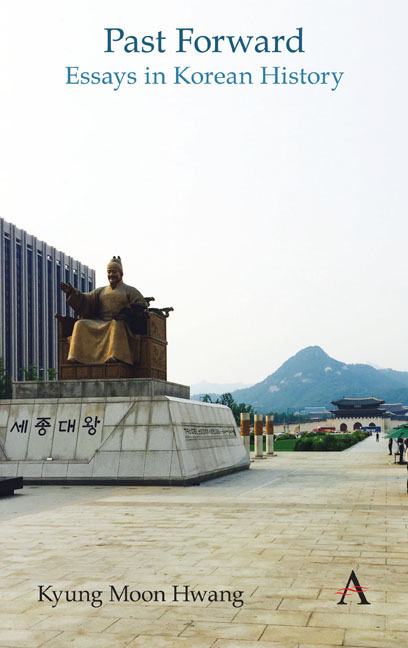Book contents
- Frontmatter
- Contents
- List of Figures
- Foreword
- Chronologies of Korean History
- Themes
- Acknowledgments
- Note on Romanization and Spelling
- Part I Circulating History
- Part II Durable Traditions
- Part III Ancient Remains
- Part IV Dynastic Depths
- Part V Modern Origins
- Part VI Challenges of Nationhood
- Part VII History Makers
- Part VIII External Presences
- 52 Korea's Complicated Relationship with China
- 53 How Chinese was Chinese History?
- 54 Tiananmen and the Power of History
- 55 Lotte between Korea and Japan
- 56 Comfort Women Beholden to History
- 57 A Modest Proposal for Dokdo
- 58 The General Sherman Incident of 1866
- 59 Depictions of the United States
- 60 Overcoming Old Views of Korea–United States Ties
- 61 Foreign Language Dependency
- Part IX Trials of Modernization
- Part X Gripped by the Past
- Index
60 - Overcoming Old Views of Korea–United States Ties
from Part VIII - External Presences
- Frontmatter
- Contents
- List of Figures
- Foreword
- Chronologies of Korean History
- Themes
- Acknowledgments
- Note on Romanization and Spelling
- Part I Circulating History
- Part II Durable Traditions
- Part III Ancient Remains
- Part IV Dynastic Depths
- Part V Modern Origins
- Part VI Challenges of Nationhood
- Part VII History Makers
- Part VIII External Presences
- 52 Korea's Complicated Relationship with China
- 53 How Chinese was Chinese History?
- 54 Tiananmen and the Power of History
- 55 Lotte between Korea and Japan
- 56 Comfort Women Beholden to History
- 57 A Modest Proposal for Dokdo
- 58 The General Sherman Incident of 1866
- 59 Depictions of the United States
- 60 Overcoming Old Views of Korea–United States Ties
- 61 Foreign Language Dependency
- Part IX Trials of Modernization
- Part X Gripped by the Past
- Index
Summary
Among the early surprises from newly elected South Korean President Moon Jae-in was his repeating age-old mantras about South Korea's historical bonds with the United States. His previous statements had suggested that, like probably the majority of South Korean adults now, he understood the complexity of America's role in Korean history. But on his trip in June 2017 to Washington DC, tellingly the first foreign capital he visited after taking office, he delivered the cliche of the “blood alliance” that the two countries had forged in the Korean War and maintained thereafter through common interests and ideals.
Disgraced ousted president Park Geun-hye would not have put it differently, nor indeed would have her father, former dictator Park Chung-Hee. For a progressive who had emphasized South Korea's autonomy from the United States, Moon Jae-in sounded remarkably similar to his predecessors. He even appeared to have gotten carried away with nostalgia, triggered by powerful impressions about the United States implanted into most South Koreans of his generation. He also had a familial connection to this mythology, which he was eager to highlight to his American hosts.
As we know, Moon was born near Busan in early 1953, just a couple of years after his parents joined thousands of other civilians fleeing the Chinese advance into the coastal city of Heungnam in late December of 1950, during the early months of the Korean War. They were among over 10,000 refugees allowed to board an American transport ship in what came to be known as the Hungnam Evacuation, or the “Christmas miracle,” which provided safe passage to Busan, the temporary capital of South Korea at the time. (The hit film “Ode to My Father” opens with a stirring dramatization of this event.)
This was one of several moments in America's intervention in the Korean War, such as the Incheon Landing of September 1950, that shaped the popular faith in America's salvational role, a picture further promoted by both South Koreans and Americans during the Cold War. With the liberalization that accompanied democratization in the late twentieth century, however, Koreans came to learn that this neat image of the United States was dubiously simplistic.
- Type
- Chapter
- Information
- Past ForwardEssays in Korean History, pp. 174 - 176Publisher: Anthem PressPrint publication year: 2019



